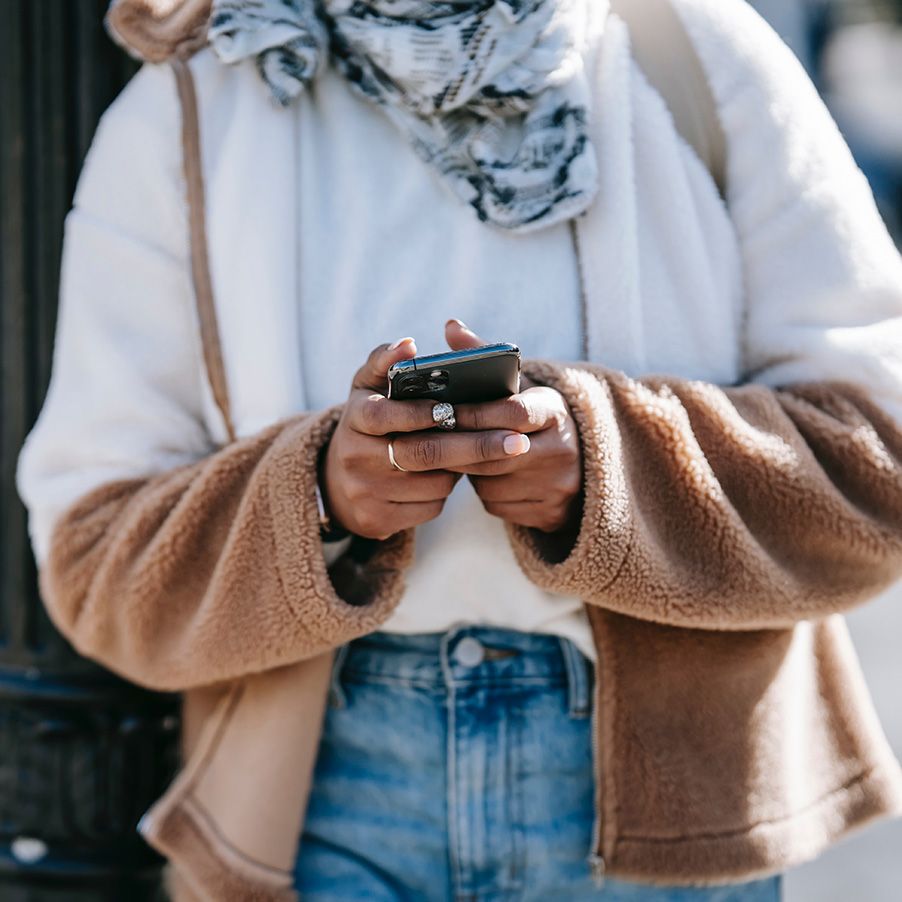I’m constantly monitoring Twitter, seeing what’s trending, realizing I have no idea what any of these buzzwords mean, learning about the existence a Gen Z artist I will never listen to, watching a video of a tranquilized bear falling out of a tree, reading a few sports and political articles, and scrolling….and scrolling…and scrolling. I’ll also check out LinkedIn for some #leadership #inspiring content and then flip over to Instagram to see some cute videos of dogs.
This firehose of social information is constantly shooting into my eyeballs, training my brain to desire a stream of new information every few minutes. On the surface, it would be so simple to just cut all of this out of my life so I could actually concentrate on work.
But what keeps me coming back to it is this: there’s a lot of value in social media as a freelancer. So many people use social media really well to benefit freelancers. People like our writer Michelle Garrett, who hosts #FreelancerChats each Thursday. Calls for pitches help writers find jobs. Freelance artists and graphic designers can share projects they are very proud of on Instagram and others can see them and get inspiration. LinkedIn is a jobs site first and foremost, your whole life’s trajectory could be changed by using it properly.
There’s a lot of value in social media as a freelancer.
As you’ve seen from the beginning of this article, I am not the right person to give you advice on how to properly use social media as a freelancer. On the contrary, I am absolutely the right person to tell you how not to use social media. Here are the traps I fall into when it comes to social media, I’m sure that you fall into at least some of these traps too.
The goal is to use social media not to be used by social media.
No. 1 Associate idle time with scrolling time
As a creative, I am in a near-constant state of daydreaming. My thoughts go all over the place and my concentration levels are very, very low. While it drives my wife crazy sometimes, it’s also how I come up with many of my creative ideas for both my day job here at Indy and as a freelance writer. Daydreaming is actually a strength of mine because in the midst of the labyrinthine nonsense are some good ideas I would never come across if I was concentrating on everything right in front of me.
However, way too often I short-circuit this and turn a strength into a weakness by using these “mindless” moments to open up my Twitter feed and scroll. Scrolling often leads me to see information that either makes me angry, makes me laugh, or makes me curious. There’s a place for all of those things, but that place isn’t every few minutes when my mind starts to wander.
Like many people, I get some of my best ideas when I’m in the shower, and I recently realized that’s because it’s the one place where I can’t open up Instagram, Twitter, or check on my desperately hopeless fantasy baseball team. I’m forced to think and chase those rabbit trails in my head. I don’t have to actually get in the shower to have this advantage, I just need to break the association of idle moments with scrolling time.
As a creative, idle moments are magical times, but too often I waste them.
The goal is to use social media not to be used by social media.
No. 2 Get excited by notifications
I know they mean nothing. I know they mean nothing. I know they mean nothing.
Wait, woah! Seven LinkedIn notifications!
Oh.
Five of them are about work anniversaries for people I’ve never met and two are ads about new LinkedIn features.
I admit I go through this routine every single day. Sure, notifications can be helpful to let you know that someone important may have contacted you, but at the same time, that notification is going to stay there until you get rid of it. So if you don’t sign into your LinkedIn or Twitter for a few days and someone important did contact you on this channel, you can still respond to them.
I live with this strange fear that I if I don’t respond to someone quickly then I’ll lose out on business, yet I can’t think of a time where I’ve ever not wanted to work with someone because they got back to me a few days late on social media. Sure, email is a bit of a different story, but if I send someone a DM on Twitter for a business-related reason and three days later they respond and say something like “Sorry I don’t get on Twitter often” I’m always more jealous of their discipline than I am upset that they don’t spend all day on the app.
Let the notifications pile up! Easier said than done, of course.
No. 3 Have no time limits
So this is one I actually do pretty well on my phone. I have time limits set on all my social media apps so I can’t mindlessly spend time on them. Every time I open up Instagram I have a clock in my head ticking, knowing that I will be out of my allotted time soon enough and the app will lock me out. It really works for me to do this, I can still enjoy Instagram but it doesn’t run my life.
Where I struggle is on my computer, which doesn’t have the same easy access to limitations that an iPhone provides. However there are several tools that will block websites for a short period of time, or permanently, to allow you to concentrate. I do make use of those when I need to concentrate, but I don’t use them enough. A smart person would set specific times of day where I could allow myself time on social media instead of relying on myself to block websites when I need to concentrate.
One way to determine if you’re spending too much time on social media is to use Indy’s Time Tracker tool. You can turn it on when you hop over to Facebook or Twitter and turn it off when you’re done. It might shock you how long you were there. Or you could turn it on when you start a project and when you’re done you might look at the time and realize how much of that project time was spent doing something else.
No. 4 Get in petty fights
Everyone loves to argue on social media. It’s one of the reasons that it’s so toxic and harmful for our mental health. Personally, I don’t do this too often, but when I do it is all consuming. It’s all I can think about the rest of the day. I think about the zingers I should send back, I think about how annoying or stupid or rude the other person is. I tell my friends how crazy this person is. I check back every few minutes to see if they’ve replied yet.
The worst part is, it’s almost never about something serious. It’s usually arguing about whether James Harden is overrated (he is). In the moment I definitely feel accomplished if I appear to have won an argument. But in reality, I wasted valuable time and brain power “winning” something with no prize. Plus, I talked to a stranger in a way that I would have never done in real life. It’s so silly.
As a freelancer it can also be very tempting to air out dirty laundry about a client. I’ve been guilty of that once or twice, but, like any freelancer, I could have done it a million times. Some people I follow seem to tweet about their clients constantly. As an editor who hires freelancers, it makes me reticent to want to work with a freelancer who does this. Even though I know I would do everything in my power to treat the freelancer right, if you’re constantly tweeting about your clients I’d be terrified to be next on the list. It’d be easier to work with someone who doesn’t do this.
No. 5 Provide no value to others
As I’ve said, there is a lot of value for freelancers in social media. If you use it right you can find jobs, you can learn tips and skills to benefit you in your work, and you can make great connections. This goes both ways though. If you’re just there to learn, but you never post about what you’ve learned or provide advice to others then you’re not using social media properly. If you’re trolling social media to find jobs for yourself, but don’t do anything to amplify opportunities for others, that’s a selfish way to operate. And if you’re trying to make connections for yourself with a bigger name freelancers but you don’t have time for less experienced freelancers, then, frankly, you don’t deserve the help that others gave you.
Freelancing is a lonely gig sometimes and you are in it for yourself, but it’s also a community of like-minded individuals who are often willing to help each other out. Social media provides a place for this to happen, but it takes everyone being willing to give as much as they take for it to be a positive environment for all.
This is as much preaching to myself as it is to anyone else, so if you’ve got some great advice for how to use social media but not be used by it send those tips my way. For today, make it a goal to track your social media time and to provide value to another freelancer!



